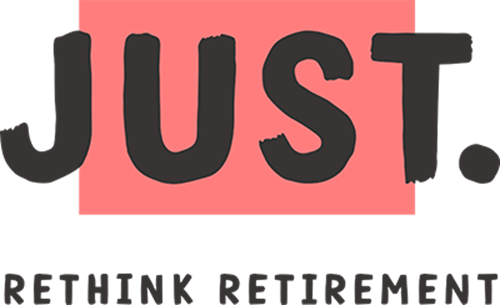What you should consider before taking an early retirement at 55
The prospect of early retirement is undeniably alluring. A clear assessment is crucial for the likely few South Africans contemplating this leap. This guide covers a few things to consider before early retirement at age 55.
It's crucial to approach retirement planning with a comprehensive understanding of the necessary steps. While retiring at 55 might seem appealing, it requires careful consideration, ideally with the guidance of a financial adviser. More retirement savings are needed to make achieving early retirement goals easier.
Remember, retirement shouldn't be left to chance.
In this guide, we will dive into:
- How much more you would need
- Your withdrawal options
- The financial implications
- The importance of partnering with a financial adviser

Planning your retirement: how much do you need?
It's important to understand that early retirement may not be feasible or typical for many individuals, particularly in South Africa, where retiring at 65 can already be a financial challenge. This is why early retirement requires careful consideration and strategic financial planning. By understanding the economic implications and making the necessary preparations, you can ensure a comfortable retirement phase and feel confident in your decision.
Financial requirements
Research suggests that to retire comfortably at 60, you must save at least 25 times your annual salary. If you aim to retire even earlier, at 55, your savings will need to be closer to 30 times your yearly salary. This is because of the extended period you will spend in retirement, which means you'll need a larger nest egg to sustain your lifestyle without income from employment.
The importance of early contributions
Contributing to your retirement savings as early as possible is the key to achieving ‘typical’ financial retirement milestones, and that’s when you plan to retire at 65. So, early contributions are even more crucial if you consider retiring at 55. The earlier you start saving, the more time your investments have to grow, thanks to the power of compound interest.
The importance of compounding
If retiring before 55 is your goal, you'll likely need to increase your contributions substantially because you are forgoing ten years of contributions and capital gains when your earnings are typically at their peak. This decision significantly impacts your retirement nest egg, which must now support an additional ten years of retirement living costs, where you could contribute more to your fund instead.
Your withdrawal options
Once you clearly understand how much you need, how much you need to contribute, and your comfort with undercutting your contributions and capital gains by ten years, you need a clear understanding of your withdrawal options, depending on your savings fund type.
Here's a roadmap to help you understand the implications of an early retirement withdrawal, depending on your savings vehicle. You'll need to consider your situation as you craft a path to secure an early retirement.

Normal retirement age
The normal retirement age in South Africa is between 60 and 65. The allure of early retirement at 55 exists, but making this a reality hinges on your retirement savings.
Let's delve into:
- Government workers: Public servants aged 55 can apply for early retirement, but be prepared for potential reductions in your pension benefits. Learn more here.
- Private company pension funds: Early retirement at 55 might be an option, depending on your employer's policies and the specific rules of your company's pension fund. Dig into the fine print to understand the eligibility criteria.
- Retirement annuities and preservation funds: the Income Tax Act allows access to retirement funds and preservation funds if the member:
- is 55 years old
- is medically disabled
- has been a non-resident for at least three consecutive years on or after 1st March 2021, or has left the country on the expiry of their visa or work permit.
- Other savings options: Similarly, provident funds only allow early retirement if you face specific triggers like ill health or emigration.
Reviewing your specific savings plan or fund rules is crucial before making any decisions. If you need more clarification, consult your employer's HR department to understand the eligibility criteria and potential consequences of early retirement. Better yet, ask for assistance from an independent financial planner. Remember, you're not alone in this journey – resources and professionals are available to support your retirement planning.

Cashing out your retirement savings
If you're contemplating retiring at 55, you must cash out your retirement savings to meet your expenses through your golden years. If you have savings in a provident fund, you can take your entire retirement fund balance accrued up to 1 March 2021. However, the funds accrued from 1 March 2021 to your retirement date must follow the same rules of a pension fund, meaning you can only take up to one-third in cash, and the balance must be used to buy a monthly pension. Any lump sum withdrawal will be subject to taxation based on specific tax rates. You can use this Lump Sum Tax Calculator to understand the tax levied on your withdrawal.
Taxpayers are typically advised against early fund withdrawals due to the high tax implications. However, consulting a financial adviser before making lump sum withdrawals is advisable.
They can help you understand:
- Tax implications: Early withdrawals from retirement funds are often subject to higher tax rates than withdrawals at the intended retirement age. Understanding how much of your withdrawal will be taxed and at what rate is essential for proper financial planning.
- Impact on retirement income sustainability: Cashing out retirement savings early will likely reduce the funds available during retirement. This can have a lasting effect on your lifestyle and financial stability.
- Alternative strategies: A financial adviser can suggest alternative strategies to meet your financial needs without compromising your early retirement goals. This might include exploring other investments and sources of income or adjusting your retirement plan.
- Long-term financial planning: It is critical to assess the long-term effects of your decisions and consider alternative strategies. A financial adviser can help you navigate these complexities and make informed decisions that align with your early retirement goals.
Ultimately, while it’s tempting to cash out retirement savings early, weighing your immediate financial needs against the long-term implications for your retirement income and financial security is essential.

Making your compulsory purchase
A very important consideration is your compulsory purchase annuity. Whether your retirement contributions have been added to a provident fund (after 1 March 2021), pension fund, or retirement annuity (RA), your options at retirement remain the same: legislation requires that you use at least two-thirds of your accrued retirement savings to purchase either a life annuity, a living annuity, or a combination of both.
At Just SA, we believe the best option is to use the whole lot for an annuity, giving you the best chance of a sustainable income in retirement.
A life annuity
A life annuity is an insurance product that guarantees you a pension for life. You transfer all investment and longevity risk to a life insurance company by opting for this retirement income product. You can also set up your annual annuity increase to best suit your needs.
Remember that purchasing a life annuity at 55 may result in a lower income because of limited compounding during accumulation. The longer you wait to purchase a life annuity, the higher your potential income will be due to increased accumulated funds. Therefore, it's essential to consider the timing of purchasing a life annuity based on your retirement goals and financial circumstances.
A living annuity
Alternatively, you can opt for a living annuity, which is an investment, not an insurance product. Here, you take on both investment and longevity risks. You have the flexibility to withdraw between 2.5% and 17.5% of your fund annually and can adjust these withdrawals yearly based on your financial needs. You can also choose how frequently you receive your income (monthly, quarterly, or annually). One key benefit is that funds in a living annuity are not part of your estate and are not subject to estate duty.
However, it's important to note that opting for a living annuity exposes you to more investment risk than a life annuity. Unlike a life annuity, your income from a living annuity is not guaranteed to last throughout your retirement. This means you must carefully manage your investment and withdrawal strategy to ensure that your funds support your retirement needs over the long term.
A hybrid or blended annuity
A third choice is a hybrid or blended annuity, which combines elements of life and living annuities. Expert financial advice is recommended when considering this option.
When considering a blended annuity, it's important to note that you will still benefit from certain advantages of a life annuity, such as a guaranteed income stream, while potentially being less exposed to investment risk compared to a pure living annuity.
Income sustainability vs longevity
In all options, it's critical to consider the impact of increasing longevity. Statistically, people are living longer nowadays, so retiring early means more overall retirement years to fund. So, with longer expected lifespans and an additional ten years of retirement to cover, individuals wanting to retire at 55 are more likely to face challenges to income sustainability if they haven’t planned well enough.
Here's a quick breakdown of the critical factors to consider when assessing the income sustainability of early retirement:
- Lower pension payouts: Retiring early often translates to fewer contribution years, potentially leading to a smaller monthly pension in retirement.
- Thwarted compounding: Early retirement cuts short the crucial compounding period, where your investments grow exponentially. Fewer years of growth can significantly impact your long-term financial security.
- Healthcare costs: Medical expenses tend to rise as you age. Retiring early means managing these costs solely from your retirement savings for longer. It would be best if you are well prepared to manage these costs.
- Longevity: The fact is longevity is increasing. Living longer than anticipated can deplete your retirement savings if you have yet to save enough, increasing the risk of outliving your nest egg.
- Inflation: Inflation gradually reduces your purchasing power. A seemingly sufficient retirement income at 55 could become inadequate decades later.
- The retirement gap: Early retirement can create a ‘retirement gap’ between your desired income and the actual income from your retirement savings. Effectively managing this gap is crucial to a sustainable income in retirement.
Remember: If you can afford it, early retirement doesn't have to be a financial nightmare. Careful planning and proactive strategies, preferably with the assistance of a financial planner, can sustainably bridge the gap between early retirement and income, ensuring a comfortable post-work life.
Whether choosing a life annuity, a living annuity, or a blended annuity, the need for income to support a longer retirement period must be carefully addressed. For this reason, we advocate that pensioners use their full retirement fund to buy a life or a blended annuity, as total income loss in retirement is insured against.
A proactive approach
Preparing for early retirement requires tailored financial strategies to ensure a smooth transition and long-term financial security. Adopting proactive approaches and considering key factors can enhance your readiness for early retirement.
Here are some general ways to increase the probability of a successful early retirement in terms of comfort and income sustainability.
- Maximise savings: Explore all options to boost your nest egg. Consider catch-up contributions and tax-efficient options to maximise the impact of your savings.
- Weather market fluctuations: A larger nest egg allows you to weather market fluctuations and potential downturns with less stress.
- Plan for longevity: Estimate your life expectancy realistically. Ensure your retirement savings can sustain you throughout a potentially lengthy retirement period.
- Understand tax and inflation: Factor in the impact of taxes and inflation on your retirement income and plan for potential increases in living costs over time.
- Diversify income sources: To supplement your retirement savings, consider generating income from part-time work, rental properties, or other investments.
- Plan for healthcare coverage: Evaluate healthcare options and ensure adequate medical aid coverage for anticipated future needs.
Remember: Early retirement is possible but requires a clear understanding of the financial realities mentioned in this article and a solid commitment to proactive planning.

Weighing up the pros and cons of retiring at 55
Let's explore the pros and cons of early retirement to help you assess whether it's the right choice for you.
The pros
- Freedom and flexibility: Pursue passions like travel, hobbies, or starting a new venture.
- More time with loved ones: Spend quality time with family and friends, fostering closer relationships and creating lasting memories.
The cons
- Reduced income and increased financial strain: A smaller income stream (or income required for a longer time) can lead to economic strain later. Consider potential adjustments to your essential expenses, retirement budget and desired lifestyle.
- Loss of employer-sponsored benefits: Early retirement can mean losing access to employer-provided health insurance and other benefits, requiring alternative solutions at additional costs.
- Boredom and lack of purpose: Some individuals struggle with boredom or a lack of purpose without the structure of work. Explore ways to stay engaged and find fulfilling activities in retirement.

In summary
For some, retirement at 55 is achievable, but it requires a proactive approach from a young age. If you’re seriously considering early retirement at age 55, you'll need significantly higher retirement savings – approximately 30 times your annual salary – to sustain a longer retirement period. Due to increased life expectancy, you’ll need to fund more years in retirement, requiring comprehensive financial planning to address longevity risks effectively.
This is why it is always critical to consult with a financial adviser who can help you plan for factors such as rising healthcare costs and inflation, and evaluate the pros (such as freedom and flexibility) and cons (such as reduced income and loss of benefits) to determine if early retirement aligns with your lifestyle and financial goals.
